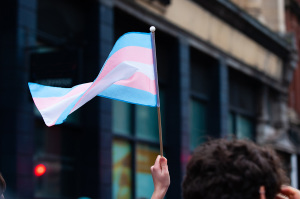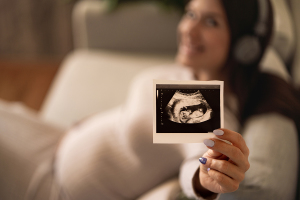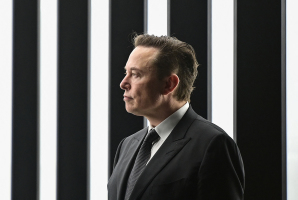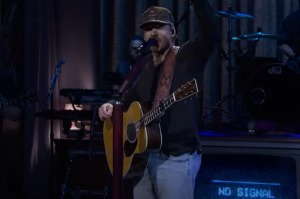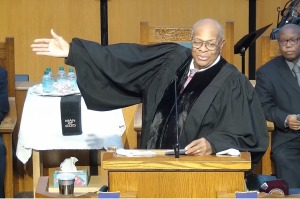San Francisco Catholics march in protest of coronavirus restrictions: 'God has to be respected'
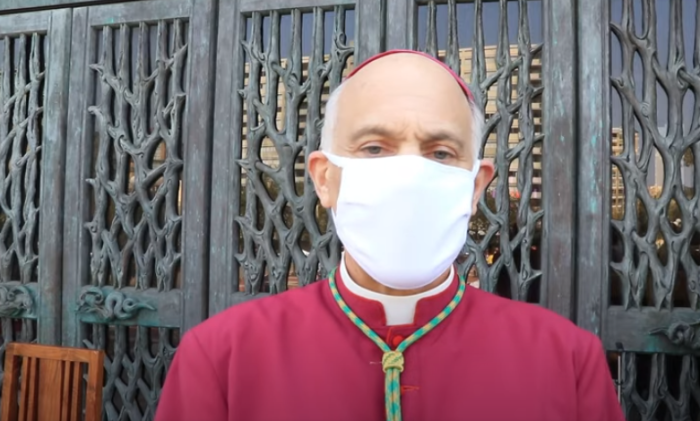
Six months into the coronavirus pandemic that prompted widespread economic shutdowns and disruptions to everyday life, Catholics in San Francisco marched in protest, decrying the worship restrictions that have prevented them from holding in-person masses as usual.
Three eucharistic processions originating at Catholic parishes throughout the city converged at city hall as protesters participated in the “Free the Mass” event Sunday. From there, attendees marched to the Cathedral of St. Mary of the Assumption, where outdoor mass was led by Archbishop Salvatore Cordileone. “We’re very tired of being discriminated against because we’ve proven scientifically we can worship safely inside the church,” he said.
Cordileone’s discrimination claim reflects the fact that coronavirus restrictions limit indoor worship services to 50 people while not placing similar limits on secular businesses such as grocery and retail stores. Cordileone and others accused local officials of violating their First Amendment rights by enacting such restrictions.
“There’s no reason to keep us shut out of church. It’s a natural right protected by the First Amendment,” Cordileone added.
“My rights as an American citizen have been trampled upon,” said Guillermo Collado, a member of St. Peter’s Parish who attended the protest. “We’re equal under the law. And they’re not treating us that way. They’re treating us as non-essential, something that can be dispensed with.”
Participants in the march disagreed with the notion that church was a “non-essential” activity. Members of the crowd repeatedly chanted, “We are essential, free the mass.”
Cordileone maintained that an inability to attend church has had an impact on the people of his faith community.
“People are hurting,” he asserted. “Our people are hurting because they cannot come to church, they cannot receive the sacraments, they cannot exercise their natural right protected by the First Amendment to worship without suffering punishment from our city.”
“The city continues to place unrealistic and suffocating restrictions on our … natural and constitutional right to worship,” he proclaimed. “God has to be respected in this society.
“If there’s no proper ordering with respecting God, which means the practice of religion has to be a part of the public life and we can do that with respect for all people’s religious beliefs, then we can put our society back together. But as long as we keep rejecting God, we’re going to keep suffering all of the … problems and the torments that we’ve been going through.”
The discontent surrounding the worship restrictions in San Francisco and California as a whole are not unique to Catholicism. Pastors of multiple Protestant churches in the jurisdictions subject to the strictest restrictions have held indoor church services in spite of the restrictions.
Even as he faced threats of fines and arrest, California Pastor John MacArthur refused to stop holding in-person church services. “We will obey God rather than men,” he said.
As coronavirus restrictions prevent worshipers living in multiple California counties from gathering indoors, outdoor worship services have taken place at beaches across the state. Sean Feucht, a worship artist who has led several outdoor beach services, declared that “what we’re seeing now is a return back to a gritty, raw Gospel, Jesus people movement” caused by the fact that “we can’t be in our churches.”
Earlier this month, the Chino Hills-based Calvary Chapel held an outdoor baptism at a southern California beach that attracted nearly 1,000 people. While Calvary Chapel has held outdoor baptisms in the past, the turnout this year was unprecedented.
“California may be experiencing a spiritual revival,” Calvary Chapel Church Director Gina Gleason explained.
According to Becket, a religious liberty law firm, California is one of six states where religious services are “prohibited or subject to unequal treatment” as compared to the coronavirus restrictions placed on other businesses. The other states are Nevada, Virginia, New Jersey, Connecticut and Maine. Becket’s tracker of worship restrictions across the 50 states was last updated on Aug. 17.
















